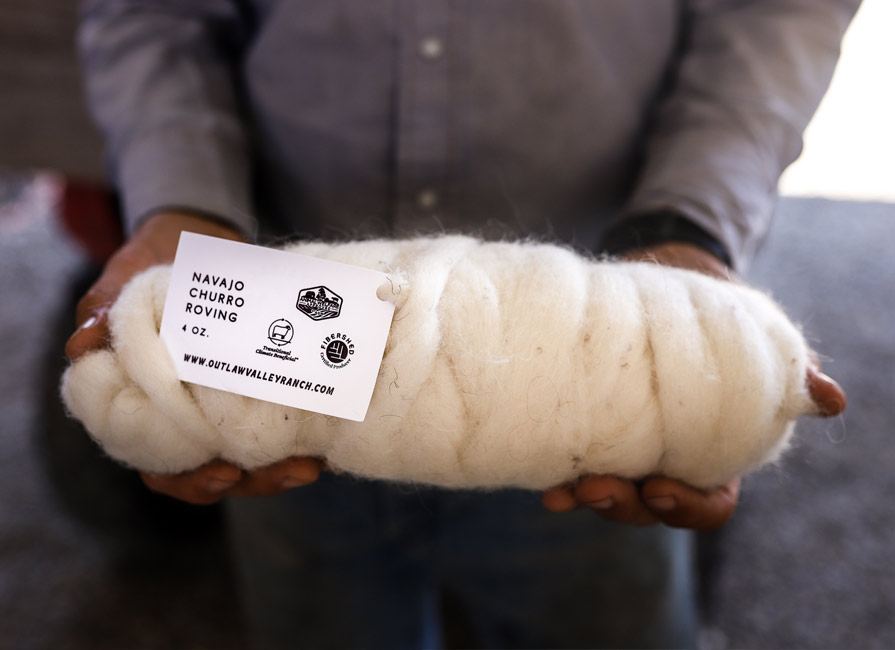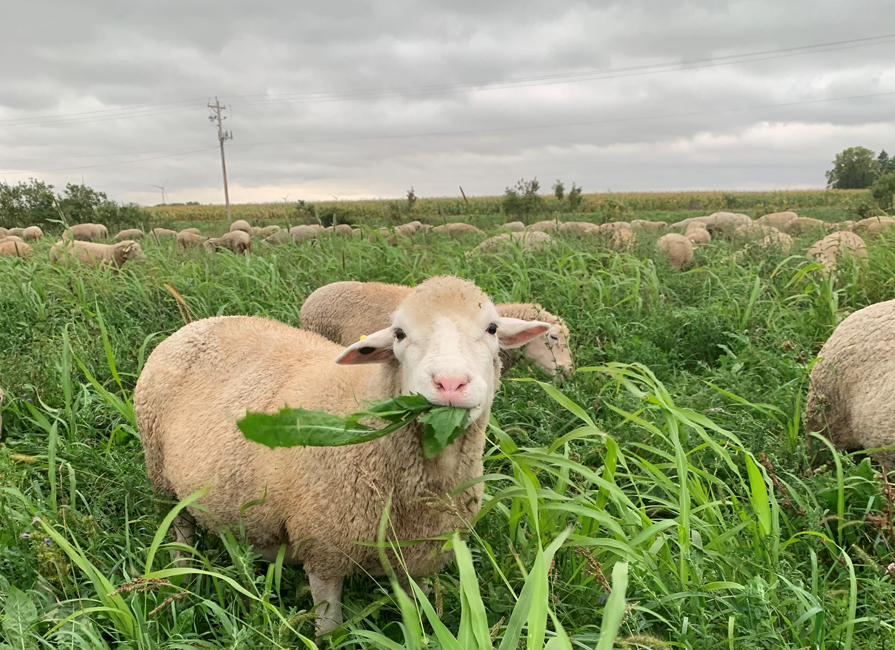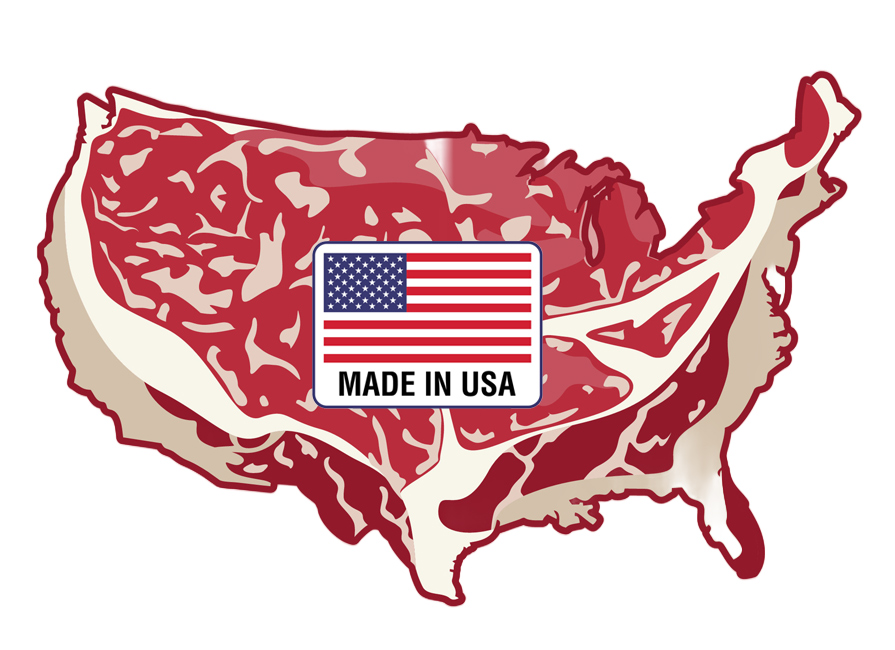Market research shows that today’s consumers are increasingly interested in knowing where their food comes…
The Conscientious Consumer’s Quandary
 Whether it’s the regular tweets of the big-name food pundits or the countless anonymous contributors to online food discussions, an astonishing amount of advice is now dished out on what food we should buy and where we should buy it. While much of this guidance is sound and reasonable, some of it is wildly inaccurate or just downright unrealistic.
Whether it’s the regular tweets of the big-name food pundits or the countless anonymous contributors to online food discussions, an astonishing amount of advice is now dished out on what food we should buy and where we should buy it. While much of this guidance is sound and reasonable, some of it is wildly inaccurate or just downright unrealistic.
Take the latest mantra that cropped up in an online discussion that I was following: ‘Before you buy any food you should go and visit the farm, because that will answer all your questions.’ Buying direct from the farm or at the farmers’ market is something I wholeheartedly enjoy supporting. In doing so, my family hasn’t bought into the appalling practices of industrial agriculture; we’ve used our dollars to support local farms – and the food usually tastes great, too. But is it realistic to expect every conscientious consumer to have the time and ability to actually visit the farm first – let alone the expertise to assess what they see when they get there?
As the saying goes, the more you know the less you understand. This is certainly true for me; when it comes to food and farming it’s not just a casual interest, it’s my job. But even with my experience I am the first to accept there’s always more to learn; and that for certain areas of farming and food production I have team members who know a lot more than I do. So while I applaud the growing number of consumers who are taking steps to understand where their food comes from and how it is produced, the assertion that you must personally visit a farm before you can trust the food – and that by implication most of us could assess if a farm meets our requirements – is disingenuous on both counts.
Now I don’t want to discourage anyone from visiting farms. In fact we speak loudly about doing just that, and the need for this kind of transparency in agriculture. A visit to a working farm, speaking to the farmer and finding out how food is produced is a fantastic opportunity, and something that I believe every schoolchild should experience as part of their curriculum. Similarly, the last thing I want to suggest is that you must have a doctorate in animal welfare or a master’s degree in environmental sustainability to have an opinion on whether a farm is doing a reasonable job or not. There’s a lot to be said for common sense – if the average person were taken behind the closed doors of many industrial farms in this country it would soon become apparent that animal welfare and environmental stewardship are very low on the list of priorities. However, some things are just not that obvious – practices such as the use of hormones, non-therapeutic antibiotics, and long-term confinement simply cannot be detected by a quick walk around the farm on a single day in June.
The participants of the recent online discussion I mentioned earlier also made much of buying local. While supporting local farms is important, I would point out that even industrial producers such as Tyson have farms that are local to someone. The term ‘local’ does not automatically guarantee good farming practices. Local might mean that visiting the farm is more feasible, but in terms of evaluating sustainability it’s not that helpful. And, as conscientious consumers, is it realistic to expect everyone in the state to burn all that gas driving out to the farm each weekend to check on the animals? Of course not. Even if we as consumers did regularly visit the farm year-round, do we then have to take the next logical step and start visiting the slaughter plant, too? I’m not sure my family would thank me for that little weekend trip.
So what is the answer? A day out on a local farm will certainly give you a good idea of its practices. Farms that open up to the public are a great educational resource for the family, especially children. Understanding that cheese is made from milk and milk comes from cows, and then seeing a cow milked, is really important for our kids – many of whom grow up thinking that milk just comes from the supermarket.
However, if you aren’t able to make regular visits to every farm your food dollar touches, and if you really want to have confidence in the farms you are supporting, you need to look for a credible third-party certification. Animal Welfare Approved is the ONLY certification that guarantees high-welfare, pasture-based management on an independent family farm. Because of this, we have become the most highly regarded food label for animal welfare and sustainability. For a comprehensive guide to the major certifications and food labels see our new guide, “Food Labeling for Dummies” available for free download at www.AnimalWelfareApproved.org.
Buying food which carries the Animal Welfare Approved seal means you can be sure that the farm – and slaughter plant – have been assessed and scored against a comprehensive list of standards by an experienced auditor. With certified farms across the country and in Canada, Animal Welfare Approved serves as the eyes and ears for today’s conscientious – and often very busy – consumers. So whether you see it displayed at your local farmers’ market, or on products sold in your local grocery store, when you see the AWA logo you know exactly what you are getting: meat, eggs and dairy products that come from farms where high welfare and sustainable management always come first.
The image above originally appeared in AWA’s article, “Behind the Label,” in the April 2011 issue of Well Fed Savannah magazine.



